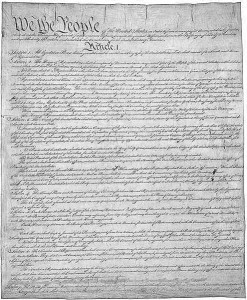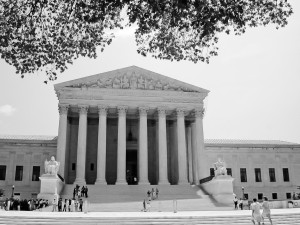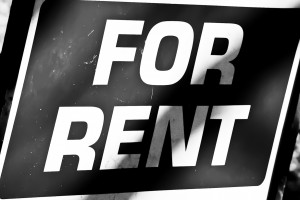Real Estate Law
Real estate represents both opportunity and obstacles. We can help you with both.
Whether you need real estate help with your home or your business, or real estate is your business, an attorney with the right expertise is critical to success. Such expertise requires more than surface level experience. At Broadbent Law, we specialize in this area–and you can benefit from the deep level of understanding we bring to almost any real estate legal issue.
Development and Zoning
Real Estate Development
 Real estate development is a complex area of law. Whether you are developing a residential community, commercial property, or recreational property, specific legal strategies are necessary to protect your business and enhance your investment.
Real estate development is a complex area of law. Whether you are developing a residential community, commercial property, or recreational property, specific legal strategies are necessary to protect your business and enhance your investment.
At Broadbent Law, we have the knowledge, contacts, and skills to make sure your real estate project is successful. We are experienced in development contracts, approvals, municipal agreements, community development, exactions, impact fees, and easements. If you are developing property, contact Broadbent Law today to see how we can become help your project become a reality.
Zoning and Entitlements
 When you develop property, you have a whole host of items to consider, not the least of which is government approval for your project. Every project is different. Some projects will require zoning, use permits, conditional approvals, building permits, or planning approval. These approvals require specific approaches to be successful.
When you develop property, you have a whole host of items to consider, not the least of which is government approval for your project. Every project is different. Some projects will require zoning, use permits, conditional approvals, building permits, or planning approval. These approvals require specific approaches to be successful.
At Broadbent Law, we represent landowners before government and municipal agencies, making sure you put your best foot forward. We enjoy the entitlement process, and look forward to advocating on your behalf. Contact us today to see how we can help make your project a success.
Condemnation & Takings
Condemnation and Eminent Domain
 The Constitution of the United States allows the government to take private property. In order to protect against government abuses, however, the 5th Amendment provides that private property can only be taken for a “public use” if “just compensation” is paid. Of course, disputes arise about whether the government’s plan for your property is for a “public use” and what “fair compensation” should be.
The Constitution of the United States allows the government to take private property. In order to protect against government abuses, however, the 5th Amendment provides that private property can only be taken for a “public use” if “just compensation” is paid. Of course, disputes arise about whether the government’s plan for your property is for a “public use” and what “fair compensation” should be.
This area of the law is complex. Recent decisions from state and federal courts continue to confuse the issue. Moreover, many property owners think that the government will treat them fairly. That is not always the case. In order to take your property, the government must follow specific procedures. At Broadbent Law, we make sure the government acts appropriately. More importantly, we make sure you are compensated fairly for your property.
We are so confident we can help you get the fair value of your property that we take condemnation cases on a contingency basis. What this means to you is that we only collect a fee on the extra money we earn for you. While clients are still responsible for costs (court costs, appraisal, or expert fees), our fee is only 1/3 of the additional money we recover from the condemning authority. This arrangement makes sure that our clients are protected, without having to “come out of pocket” for expensive litigation.
Because of the complex nature of these claims, it is essential that you have an attorney guide you through the process. If a government agency has contacted you about taking all or part of your property, contact Broadbent Law today to see how we can protect your rights and make sure you receive the fair value of your property.
Takings or Inverse Condemnation
 When the government takes your property, it must declare the “taking.” If the government takes your property but fails to initiate a condemnation, or fails to pay “just compensation” as required by the 5th Amendment, property owners must sue to protect their rights. These claims are sometimes referred to as “inverse condemnation” or “takings” claims.
When the government takes your property, it must declare the “taking.” If the government takes your property but fails to initiate a condemnation, or fails to pay “just compensation” as required by the 5th Amendment, property owners must sue to protect their rights. These claims are sometimes referred to as “inverse condemnation” or “takings” claims.
The government can improperly “take” your property in several ways. It can physically take the property, i.e. take the land, keep it after a lease expires, flood it, deprive you from access to the land, build a road on it, etc…. The government can also institute a “regulatory taking.” This type of taking occurs when the government adopts regulations, or takes some action, that makes your property unusable for economically viable purposes.
In these situations, you have a right to sue the condemning authority for the lost value of your property. Understandably, these claims are complicated and require an experienced attorney to make sure your interests are protected. If the government has taken your property, either physically or by regulation, contact Broadbent Law and let us help you collect the fair value of your property.
Real Estate Litigation
Real estate disputes are, unfortunately, a part of life and business. When they occur, you need an attorney with a proficiency for resolving these types of claims. At Broadbent Law, we has substantial experience in real estate litigation and are willing to pursue our client’s interests in all forums. We also understand that litigation is not always the best business and that other strategies can lead to a successful result outside of litigation. If you have a real estate dispute, let Broadbent Law help you reach the best resolution in the most effective way. Our experience includes:
Contract Disputes
 Most real estate cases have a common element at their core – the breach of a contract. Some contracts are clear, others are more ambiguous. These claims can involve owners, developers, buyers, sellers, agents, and anyone else involved in real estate.
Most real estate cases have a common element at their core – the breach of a contract. Some contracts are clear, others are more ambiguous. These claims can involve owners, developers, buyers, sellers, agents, and anyone else involved in real estate.
If you believe a party has breached its contract with you, or if a third-party is accusing you of breaching a contract, you need experienced legal advice to make sure your rights are protected. If you have a contract dispute, contact Broadbent Law today and let us help protect your interests and be the advocate you need.
Easement, Covenant, or Boundary Disputes
 An easement, generally speaking, gives someone the right to use or access land for a particular purpose, even though they do not own it. Easement disputes can arise if parties disagree about the size, use, duration, location, or status of an easement. If you are a property owner whose property is burdened by an easement, or if you have a right to use an easement, disputes may arise. If you have an easement dispute, contact Broadbent Law and let us help bring clarity to the issue.
An easement, generally speaking, gives someone the right to use or access land for a particular purpose, even though they do not own it. Easement disputes can arise if parties disagree about the size, use, duration, location, or status of an easement. If you are a property owner whose property is burdened by an easement, or if you have a right to use an easement, disputes may arise. If you have an easement dispute, contact Broadbent Law and let us help bring clarity to the issue.
Express and implied covenants control how property can be used. Such covenants can be found in express documents, such as CC&R’s, or implied from promises or previous uses. Disputes can arise out of both express and implied covenants. If you own property that is burdened by express or implied covenants let Broadbent Law advise you as to your rights.
Property boundaries are another source of common disputes. These disputes can arise out of mistakes in title, mistakes on deeds, erroneous surveys, or disputed boundary lines. If you have a dispute about your property’s boundaries, contact Broadbent Law and let us help you resolve the issue.
Quiet Title Disputes
 Quiet title actions are used to clear up disputes about the title to property. They can arise when there are multiple parties who claim ownership of a house, if there were mistakes made when a deed was recorded, or sometimes occur if property is purchased at a sheriff’s or trustee’s sale.
Quiet title actions are used to clear up disputes about the title to property. They can arise when there are multiple parties who claim ownership of a house, if there were mistakes made when a deed was recorded, or sometimes occur if property is purchased at a sheriff’s or trustee’s sale.
If you own property that is subject to a title dispute, you need an attorney to make sure that the title to your property is clear. If you have a title dispute, contract Broadbent Law so we can protect your investment and clear up title to your property.
Landlord/Tenant
 Landlord and tenant relationships are governed by contract and statute. When a party believes that the other has breached the agreement, we are prepared to help you reach a resolution, whether that is through negotiation or litigation. If you have a landlord/tenant dispute, contact Broadbent Law and let our experience ensure that your rights are protected.
Landlord and tenant relationships are governed by contract and statute. When a party believes that the other has breached the agreement, we are prepared to help you reach a resolution, whether that is through negotiation or litigation. If you have a landlord/tenant dispute, contact Broadbent Law and let our experience ensure that your rights are protected.
Landlord / Tenant
 Landlord/tenant relationships are governed by contract and statute. When a tenant breaches a lease agreement, the landlord can be substantially damaged. This is especially true in commercial leases, which generally involve complex contracts and obligations for both parties.
Landlord/tenant relationships are governed by contract and statute. When a tenant breaches a lease agreement, the landlord can be substantially damaged. This is especially true in commercial leases, which generally involve complex contracts and obligations for both parties.
While landlords have an interest in protecting their property, this area of the law is strictly controlled by statute. When and how evictions occur, what rights the parties may have under their respective contracts, and all other facets of the landlord/tenant relationship are governed by state law.
If you are looking to enter into a commercial lease, looking to enforce the terms of a breached agreement, or looking to evict a tenant for a breach or non-performance, you need legal advice to make sure that your actions are in compliance with state law. That is where Broadbent Law comes in. We are experienced in landlord/tenant matters and can help protect your property and rights. If you have a landlord/tenant issue, contact us today.
Transactions
 Real estate law consists of two distinct areas – putting a deal together, and fighting about liability when the transaction falls apart. Careful planning in the former can help avoid the latter.
Real estate law consists of two distinct areas – putting a deal together, and fighting about liability when the transaction falls apart. Careful planning in the former can help avoid the latter.
At Broadbent Law, we are experienced in litigating and resolving real estate disputes. We are also experienced in drafting the necessary documents, and being dogged about the details of a transaction, to make sure that a real estate transaction does not turn into a litigation nightmare.
If you are a buyer or seller of property, it is important that you have legal advice to make sure that your transaction goes smoothly, and without exposing you to unnecessary litigation. If you are buying or selling real estate, contact us today and put our knowledge to work for you.
 Real estate development is a complex area of law. Whether you are developing a residential community, commercial property, or recreational property, specific legal strategies are necessary to protect your business and enhance your investment.
Real estate development is a complex area of law. Whether you are developing a residential community, commercial property, or recreational property, specific legal strategies are necessary to protect your business and enhance your investment. When you develop property, you have a whole host of items to consider, not the least of which is government approval for your project. Every project is different. Some projects will require zoning, use permits, conditional approvals, building permits, or planning approval. These approvals require specific approaches to be successful.
When you develop property, you have a whole host of items to consider, not the least of which is government approval for your project. Every project is different. Some projects will require zoning, use permits, conditional approvals, building permits, or planning approval. These approvals require specific approaches to be successful. The Constitution of the United States allows the government to take private property. In order to protect against government abuses, however, the 5th Amendment provides that private property can only be taken for a “public use” if “just compensation” is paid. Of course, disputes arise about whether the government’s plan for your property is for a “public use” and what “fair compensation” should be.
The Constitution of the United States allows the government to take private property. In order to protect against government abuses, however, the 5th Amendment provides that private property can only be taken for a “public use” if “just compensation” is paid. Of course, disputes arise about whether the government’s plan for your property is for a “public use” and what “fair compensation” should be. When the government takes your property, it must declare the “taking.” If the government takes your property but fails to initiate a condemnation, or fails to pay “just compensation” as required by the 5th Amendment, property owners must sue to protect their rights. These claims are sometimes referred to as “inverse condemnation” or “takings” claims.
When the government takes your property, it must declare the “taking.” If the government takes your property but fails to initiate a condemnation, or fails to pay “just compensation” as required by the 5th Amendment, property owners must sue to protect their rights. These claims are sometimes referred to as “inverse condemnation” or “takings” claims. Most real estate cases have a common element at their core – the breach of a contract. Some contracts are clear, others are more ambiguous. These claims can involve owners, developers, buyers, sellers, agents, and anyone else involved in real estate.
Most real estate cases have a common element at their core – the breach of a contract. Some contracts are clear, others are more ambiguous. These claims can involve owners, developers, buyers, sellers, agents, and anyone else involved in real estate. An easement, generally speaking, gives someone the right to use or access land for a particular purpose, even though they do not own it. Easement disputes can arise if parties disagree about the size, use, duration, location, or status of an easement. If you are a property owner whose property is burdened by an easement, or if you have a right to use an easement, disputes may arise. If you have an easement dispute, contact Broadbent Law and let us help bring clarity to the issue.
An easement, generally speaking, gives someone the right to use or access land for a particular purpose, even though they do not own it. Easement disputes can arise if parties disagree about the size, use, duration, location, or status of an easement. If you are a property owner whose property is burdened by an easement, or if you have a right to use an easement, disputes may arise. If you have an easement dispute, contact Broadbent Law and let us help bring clarity to the issue. Quiet title actions are used to clear up disputes about the title to property. They can arise when there are multiple parties who claim ownership of a house, if there were mistakes made when a deed was recorded, or sometimes occur if property is purchased at a sheriff’s or trustee’s sale.
Quiet title actions are used to clear up disputes about the title to property. They can arise when there are multiple parties who claim ownership of a house, if there were mistakes made when a deed was recorded, or sometimes occur if property is purchased at a sheriff’s or trustee’s sale. Landlord and tenant relationships are governed by contract and statute. When a party believes that the other has breached the agreement, we are prepared to help you reach a resolution, whether that is through negotiation or litigation. If you have a landlord/tenant dispute, contact Broadbent Law and let our experience ensure that your rights are protected.
Landlord and tenant relationships are governed by contract and statute. When a party believes that the other has breached the agreement, we are prepared to help you reach a resolution, whether that is through negotiation or litigation. If you have a landlord/tenant dispute, contact Broadbent Law and let our experience ensure that your rights are protected. Landlord/tenant relationships are governed by contract and statute. When a tenant breaches a lease agreement, the landlord can be substantially damaged. This is especially true in commercial leases, which generally involve complex contracts and obligations for both parties.
Landlord/tenant relationships are governed by contract and statute. When a tenant breaches a lease agreement, the landlord can be substantially damaged. This is especially true in commercial leases, which generally involve complex contracts and obligations for both parties. Real estate law consists of two distinct areas – putting a deal together, and fighting about liability when the transaction falls apart. Careful planning in the former can help avoid the latter.
Real estate law consists of two distinct areas – putting a deal together, and fighting about liability when the transaction falls apart. Careful planning in the former can help avoid the latter.